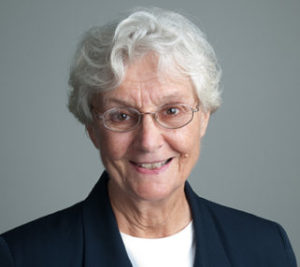
READINGS
First Reading: Exodus 17: 3-7
Responsorial Psalm 95: 1-2, 6-9
Second Reading: Romans 5: 1-2, 5-8
Gospel: John 4: 5-42
Are you thirsty?
It has been said that we are children of Earth. The meaning of this phrase has been reinforced by the biblical story that tells how God formed the first man out of the clay of Earth (Gen 2:7). In reality, it might be more correct to say that we are children of the water. Life on Earth began in the water, and then developed out of it. Furthermore, the human body actually consists of about 60% water. We can live for several weeks without food, but can survive only three or four days without some form of water.
Boundaries told us that we do not drink enough liquid, that we walk around dehydrated. We are also told that when we experience thirst we are already in the first stages of dehydration. Water is essential for life and health. It is no wonder that water is a very prominent metaphor in religious writing around the world. It certainly is important in the Bible, and we see this in today’s readings.
The lack of faith of the people in the first reading is astounding. They have just experienced the miraculous parting of the waters of the sea, enabling them to escape from the Egyptian armies. Despite this, they have the audacity to question God’s provident care of them: “Why did you have us leave Egypt? Was it just to have us die here of thirst?” Were their memories already so short? Did they doubt that the God who saved them from the deadly waters of the sea would be able to quench their thirst with refreshing water in the wilderness? What is God’s response to such inconstancy? One might think that it would be punishment. No! God’s response is graciousness. The people complain; and God gives them water.
The gospel reading tells us about a woman who goes to a well and there is promised water with properties far beyond her wildest imagining. Here too we see divine liberality. Just as the Israelites did not merit the water that God provided for them in the wilderness, so this woman is perhaps the last person to whom “living water” should be given. At least that is what we might think. After all, she is a woman and, in a male-preferred society, she is undeserving of any special privileges. Add to this the fact that she is a Samaritan, a member of the group that observant Jews considered fallen-away from the true religion of Israel. Finally, she is a woman of questionable virtue even within her own society. Otherwise, why would she come alone to draw water from the well, rather than in the company of the other women?
As a man and as a Jew, Jesus would have known that conversation with this woman crossed the boundaries of propriety. But then, such boundaries never prevented Jesus from doing good. Besides, it is those who are thirsty who have need of water. The woman’s words revealed that she was certainly thirsty. Though recognizing the impropriety of their communication, she asked for an explanation of his cryptic words. She came thirsty for water; she proved to be thirsty for insight; and she was promised “a spring of water welling up to eternal life.”
This Sunday begins a special time in the instruction of those planning to be baptized at Eastertime. The gospels for these ‘scrutiny’ Sundays are taken from John rather than from the gospel of this specific liturgical cycle. Intended primarily for catechumens, they contain messages for the rest of us as well. Today, with the Israelites, we are told that God will quench our thirst, whether we realize that we are spiritually dehydrated or not. Today we see that Jesus is the source of “living water.” Today Paul tells us that “the love of God has been poured out into our hearts through the Holy Spirit who has been given to us.”
There is no thought of our meriting these favors. The Israelites were undeserving; the Samaritan woman was undeserving; and we too are undeserving. Paul reminds us that “while we were still sinners Christ died for us.” What matters is whether or not we know that we are thirsty; and if we are thirsty, whether or not we know where to find “living water.” The Psalm reminds us how necessary it is to be ever open to the goodness of God. “Oh, that today you would hear [God’s] voice.” We have enjoyed God’s goodness in the past. We must trust that this goodness will continue. Therefore, we must be open to new challenges, to new opportunities to cross beyond restrictive boundaries.
These ‘’scrutiny’ Sundays are wonderful Lenten opportunities to look deeply into our own hearts. Have they hardened like the hearts of those who take God’s goodness for granted? Do we test God, even though we have seen and experienced God’s marvelous deeds in our lives? Or are we like the Samaritan woman, caught in the complexities of life, yet always open to new insights, to conversion of mind and heart, to opportunities for bringing others to Jesus? How thirsty are we?
Sr. Dianne Bergant, CSA
Carroll Stuhlmueller, CP, Distinguished Professor Emerita of Old Testament Studies